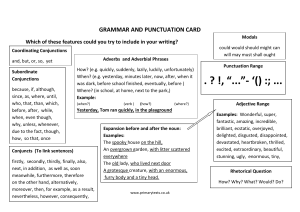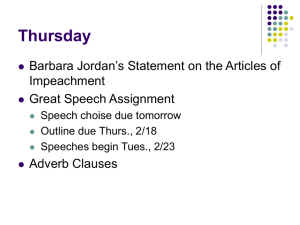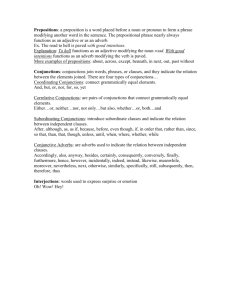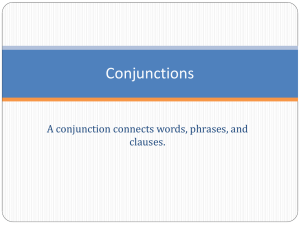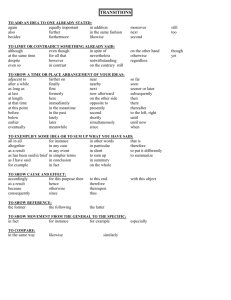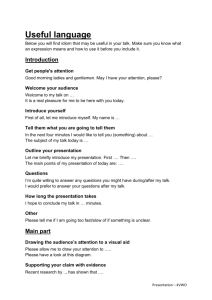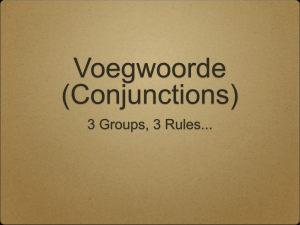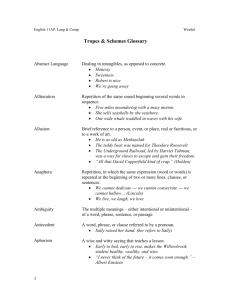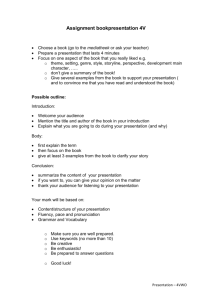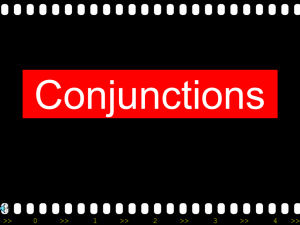Link to grammar of CONJUNCTS and CONJUNCTIONS
advertisement
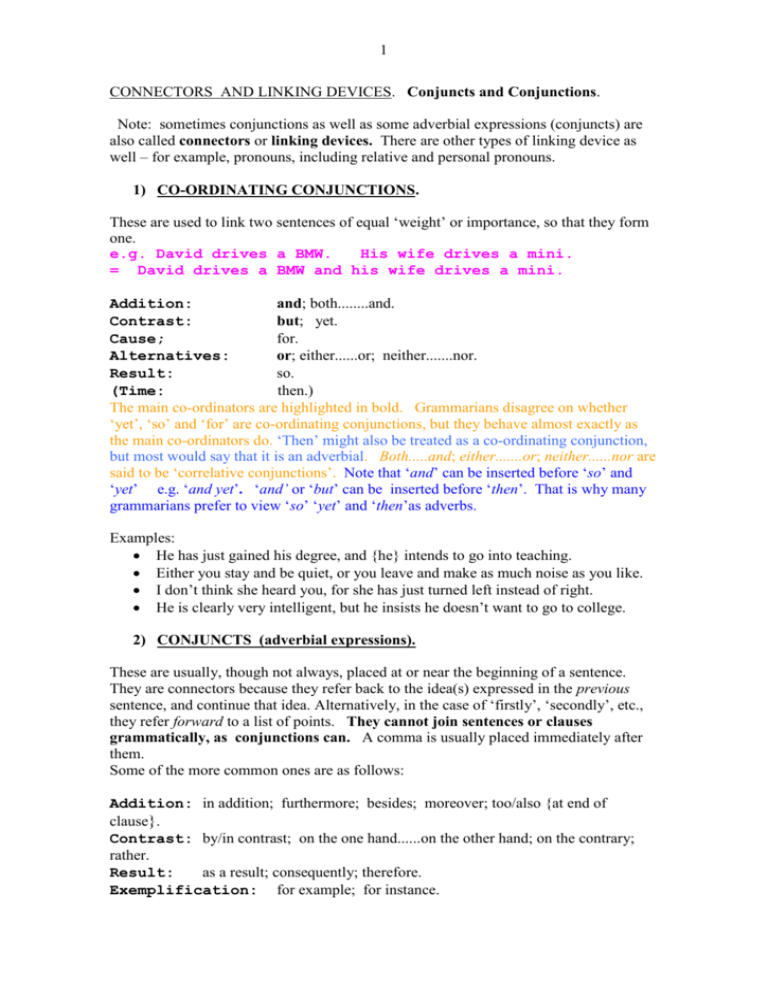
1
CONNECTORS AND LINKING DEVICES. Conjuncts and Conjunctions.
Note: sometimes conjunctions as well as some adverbial expressions (conjuncts) are
also called connectors or linking devices. There are other types of linking device as
well – for example, pronouns, including relative and personal pronouns.
1) CO-ORDINATING CONJUNCTIONS.
These are used to link two sentences of equal ‘weight’ or importance, so that they form
one.
e.g. David drives a BMW.
His wife drives a mini.
= David drives a BMW and his wife drives a mini.
Addition:
and; both........and.
Contrast:
but; yet.
Cause;
for.
Alternatives:
or; either......or; neither.......nor.
Result:
so.
(Time:
then.)
The main co-ordinators are highlighted in bold. Grammarians disagree on whether
‘yet’, ‘so’ and ‘for’ are co-ordinating conjunctions, but they behave almost exactly as
the main co-ordinators do. ‘Then’ might also be treated as a co-ordinating conjunction,
but most would say that it is an adverbial. Both.....and; either.......or; neither......nor are
said to be ‘correlative conjunctions’. Note that ‘and’ can be inserted before ‘so’ and
‘yet’ e.g. ‘and yet’. ‘and’ or ‘but’ can be inserted before ‘then’. That is why many
grammarians prefer to view ‘so’ ‘yet’ and ‘then’as adverbs.
Examples:
He has just gained his degree, and {he} intends to go into teaching.
Either you stay and be quiet, or you leave and make as much noise as you like.
I don’t think she heard you, for she has just turned left instead of right.
He is clearly very intelligent, but he insists he doesn’t want to go to college.
2) CONJUNCTS (adverbial expressions).
These are usually, though not always, placed at or near the beginning of a sentence.
They are connectors because they refer back to the idea(s) expressed in the previous
sentence, and continue that idea. Alternatively, in the case of ‘firstly’, ‘secondly’, etc.,
they refer forward to a list of points. They cannot join sentences or clauses
grammatically, as conjunctions can. A comma is usually placed immediately after
them.
Some of the more common ones are as follows:
Addition: in addition; furthermore; besides; moreover; too/also {at end of
clause}.
Contrast: by/in contrast; on the one hand......on the other hand; on the contrary;
rather.
Result:
as a result; consequently; therefore.
Exemplification: for example; for instance.
2
Purpose: to that end; with this in mind.
Concession: even so; however; nevertheless; still; though{at end of clause}.
Sequence: firstly; secondly; next; finally.
Summarising: in short; all in all; to sum up; when all is said and done.
Examples:
He can’t speak English. Therefore, he doesn’t understand a word.
There are no vacancies for you now. However, we will put your name at the top
of the waiting list.
It’s no use my going with them as I haven’t got a car. Besides, I never passed my
driving test!
There are two points of view to consider: on the one hand, speaking English is
good for Tourism; on the other hand, it makes people think Portuguese isn’t
important.
3) SUBORDINATING CONJUNCTIONS.
Like co-ordinating conjunctions, they are used to link sentences grammatically.
However, the clauses that these conjunctions introduce are subordinate, or
dependent on the main clause, and are adverbials. Unlike co-ordinated clauses,
they can usually come first or second in the sentence:
e.g. Although it’s raining, I’ll take the dogs out.
I’ll take the dogs out, although it’s raining.
However, compare with:
She has gone to the station, and will catch the 9
o’clock train.
*And will catch the 9 o’clock train she has gone to the
station. (Clearly wrong.)
Time: when; before; after; while; until; as soon as; since; as long as.
Condition: if; unless; as long as; in case; whether....or; provided/providing
that; suppose/supposing that; on condition that.
Purpose: in order that; so that; in order to {+ infinitive}; so as to {+ infinitive}.
Reason: because; as; since.
Result: so that; with the result that; so. {Note that in this case the subordinate
result clauses must come second in the sentence, after the main clause}.
Concession: although; even though; though; while; whereas(formal).
Comparison: as.....as; more......than ; less......than ; not as........as.
Examples:
When he arrives, please tell him I’m here.
Unless you study, you’ll certainly fail.
I’m saving up in order that I can buy a car.
She didn’t get the job because she didn’t have the right qualifications.
The car was very old, with the result that it finally broke down on the
motorway.
Although my mother is still young, she hasn’t felt well for a long time.
Note: ‘as long as’; ‘while’ & ‘since’ above are used in two different senses.

